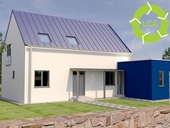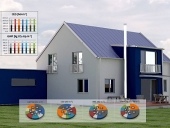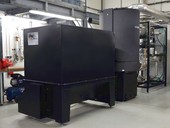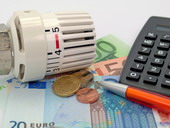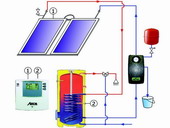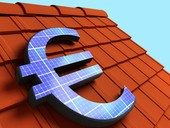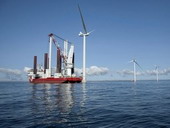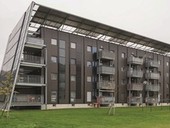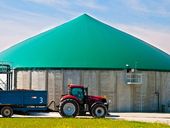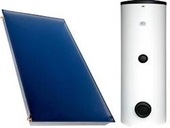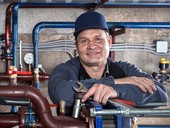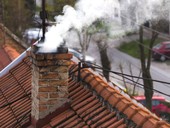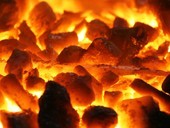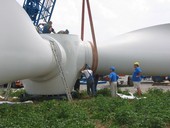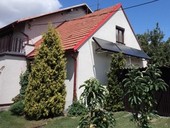This two-part paper deals with the topic of environmental effectiveness of buildings. The goal of the paper is evaluation of expected embodied environmental impacts related with a detached family house. First part of the paper describes the evaluated building and used methods. Seven currently common variants of load-bearing structures (walls and floors) are described and compared. Five variants include masonry, while the sixth and seventh variant includes cast-in-place reinforced concrete structures. The evaluation follows Life-Cycle Assessment (LCA) methodology according to ČSN EN 15978 standard. The results of the evaluation are shown in the second part of the paper. Under the specified boundary conditions the variant with ceramic masonry filled with mineral wool has 5–14 % lower environmental impacts than other evaluated variants.
Archiv článků od 2.11.2016 do 3.4.2017
This two-part paper deals with the topic of environmental effectiveness of buildings. The goal of the paper is evaluation of expected embodied environmental impacts related with a detached family house. First part of the paper describes the evaluated building and used methods. Seven currently common variants of load-bearing structures (walls and floors) are described and compared. Five variants include masonry, while the sixth and seventh variant includes cast-in-place reinforced concrete structures. The evaluation follows Life-Cycle Assessment (LCA) methodology according to ČSN EN 15978 standard. The results of the evaluation are shown in the second part of the paper. Under the specified boundary conditions the variant with ceramic masonry filled with mineral wool has 5–14 % lower environmental impacts than other evaluated variants.
Czech Statistical Office published in the February 2017 data from a large sample survey in Czech households with an Energy 2015. This survey was focused mainly on the consumption structure and methods of use of particular fuels and energy. The data focus on historical comparisons and consumption trends from 1991 to 2015. The statistics include methods of thermal insulation of housing, fuel used for heating and hot water, the average consumption of Czech households, types of heating sources, etc.
Paper describes selected effects of implementation of biomass microCHP generation in Czech legal conditions. Selected demonstration of biomass CHP is described and basic operational energy balances are presented. Comparison of microCHP and ordinary biomass boiler energy balance were performed. MicroCHP technology WAVE, which is being developed at CTU UCEEB in Buštěhrad, is described. Operational parameters of WAVE and future development outline were discussed.
The Ministry of Environment intends to publish the changes for the second round of grants for the replacement of boilers in March 2017. Prefer to be renewables, coal-fired boilers will have less support than before. Until now, the accepted 26,000 applications for grants, money is one-third depleted.
For more than a year, a nearly zero-energy standard has applied to certain buildings. In the Czech environment, specific technical parameters for such buildings have been known for three years. And for over six years, the Directive on energy performance of buildings has been in force, imposing the obligation upon EU member states to introduce this standard.
Nevertheless, it seems that for many experts, including those in the field of energy, this term is still quite unclear. Many imagine buildings coated with photovoltaic modules from the ground to the roof, buildings which are better than passive ones or buildings which are self-sufficient, i.e. completely independent of public energy networks. Given the fact that the concept of a nearly zero energy building is very distant from such notions, and because this standard will soon become obligatory for all buildings, including small family houses, let's have a look at what a nearly zero-energy building really is.
The article describes the impact of the contemporary and future legislative requirements for new buildings in terms of their conception and utilization of renewable resources. Soon, the requirement of quality standard is going to be effective in the Czech Republic that is called building with nearly zero energy consumption. That quality standard is defined at national level by legal regulations based on the requirement of European standard. On examples of family house, residential house and administration building, the impact of the to-be-established requirements for building conception is being demonstrated from the construction as well as the technical systems' point of view. With the existing development trend maintained it can be expected that a building with nearly zero energy consumption will have, comparing to an existing building, a better quality building shell, technical systems working with high efficiency and potentially may but needn't be, partially supplied by renewable energy resources.
For rational design of concrete structures, it is necessary to take into account all types of loads to which the structure is exposed during the execution, operation and reconstruction. Biogas tanks belong to the group of constructions where the indirect and environmental loads represent a high risk to the reliability, particularly in terms of their serviceability and durability. The article analyses the effects of these loads as well as the causes of separation cracks formation.
Operators of boilers and heaters, solid fuel for power from 10 to 300 kW, connected to a hot water heating system, left last month in order to secure the obligatory checking its source authorized person (if not already). Perhaps the biggest problem are false inspectors who at the gullible and "ignorant" operators carry out checks without having to be entitled. Thus, the inspections carried out are usually cheaper than controls carried out by an authorized person, but from the perspective of the law are invalid.
This article is the third in a series of Smart Cities - the cities of the future, which is aimed to provide some concrete solutions and applications of smart cities, that are already being applied in the world and tries to describe their contribution to public administration and urban residents. In this article, we focus on two areas of Smart City - Smart Living and Smart Environment.
The European Parliament approved November 23, 2016 the new limits for selected emissions and air pollutants. For Member States resulting from this new commitments to reduce certain emissions in two stages - from 2020 and from 2030. For the Czech Republic based on commitments to the middle threshold in comparison to the commitments of other EU members. Prescribed emission reductions will be mainly sulfur dioxide, nitrogen oxides, ammonia emissions and fine particulate matter (airborne dust).
The article describes the formation of various types of impurities (solid, liquid and gaseous) during the gasification of solid fuels. In each type of reactor (refer to article Gasification – principles and reactors) is produced different amount of impurities with different composition. In this article are described formation and chemical composition of the impurities.
The construction of wind power plant in comparison with other types of electricity generators is relatively fast and simple. Even so, it has its obvious specifics which are reflected not only in the construction and transportation of parts, but also in the length of the permitting process in proportion to the time of construction. The seventh episode illustrates how to build a wind power plant.
At the level of the family living in the houses have increasingly promoted the combination of a new wood-fired boiler with a solar thermal system. Investors installations thus combined technologies monitor both reduce their energy costs and increase comfort and simplifies operation of facilities providing heat for heating and hot water.
zpět na aktuální články
